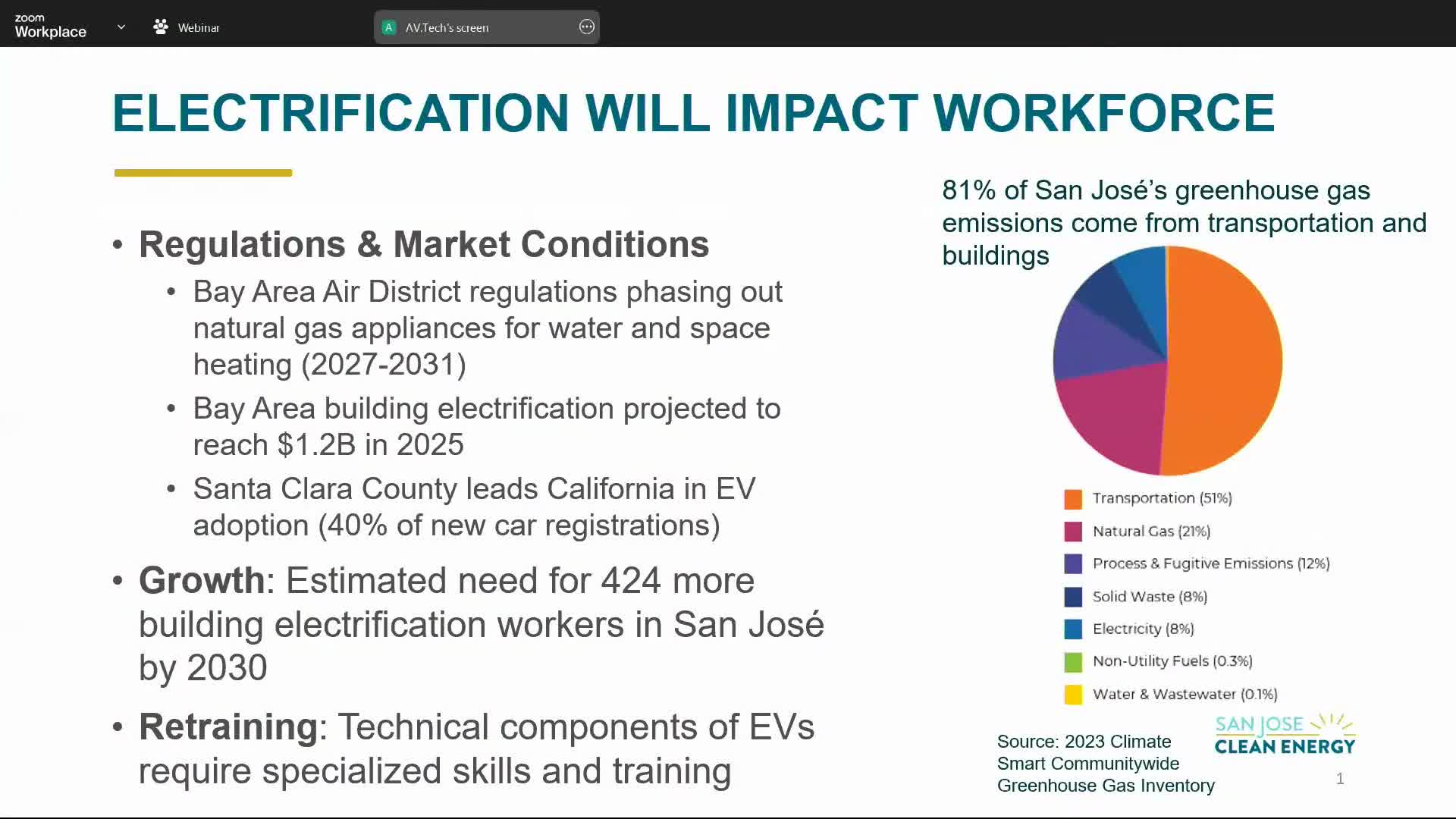Article not found
This article is no longer available. But don't worry—we've gathered other articles that discuss the same topic.
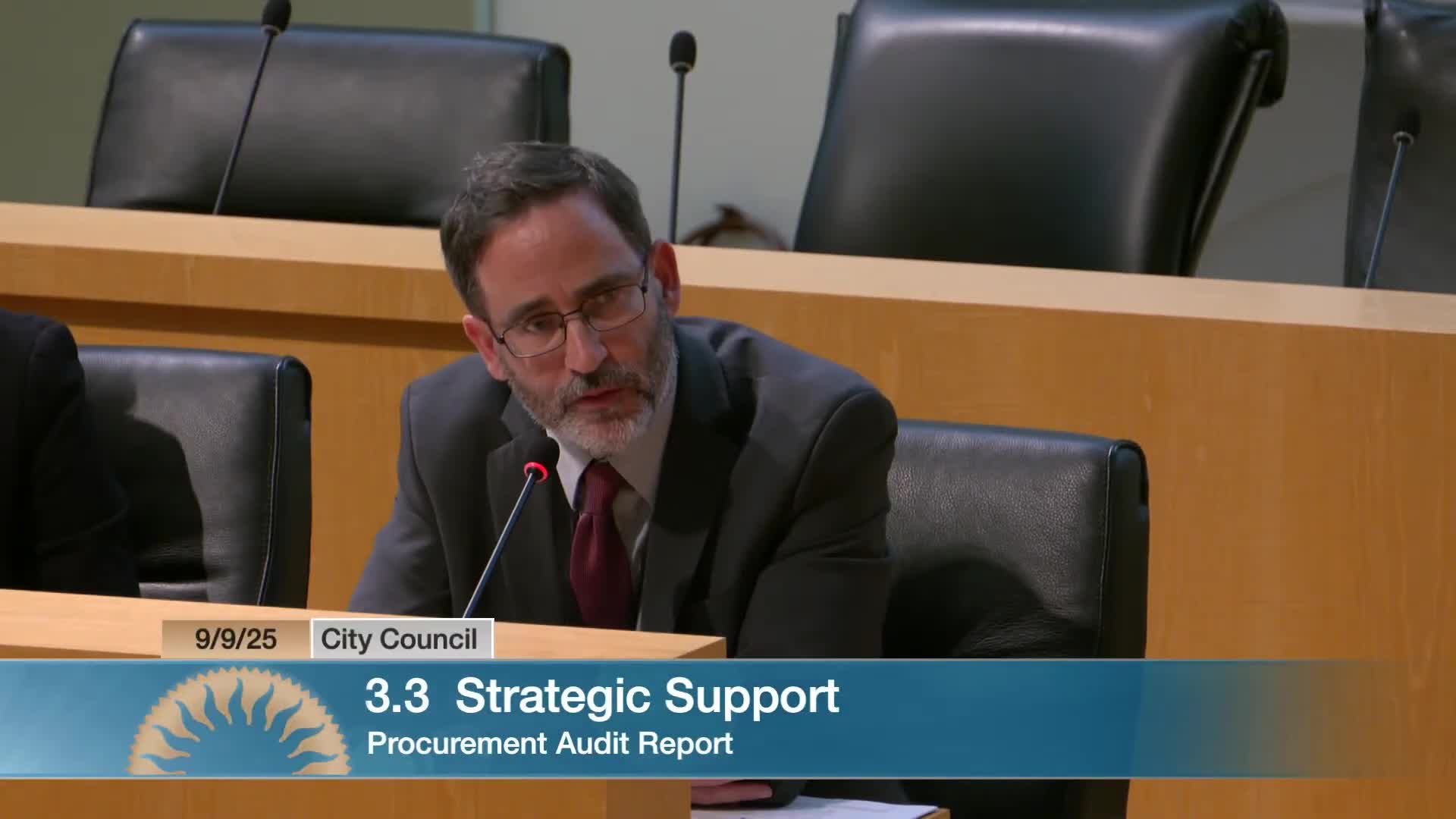
Council approves $10 million San Jose contribution to 101‑Zanker interchange final design; critics urge more bike/ped changes
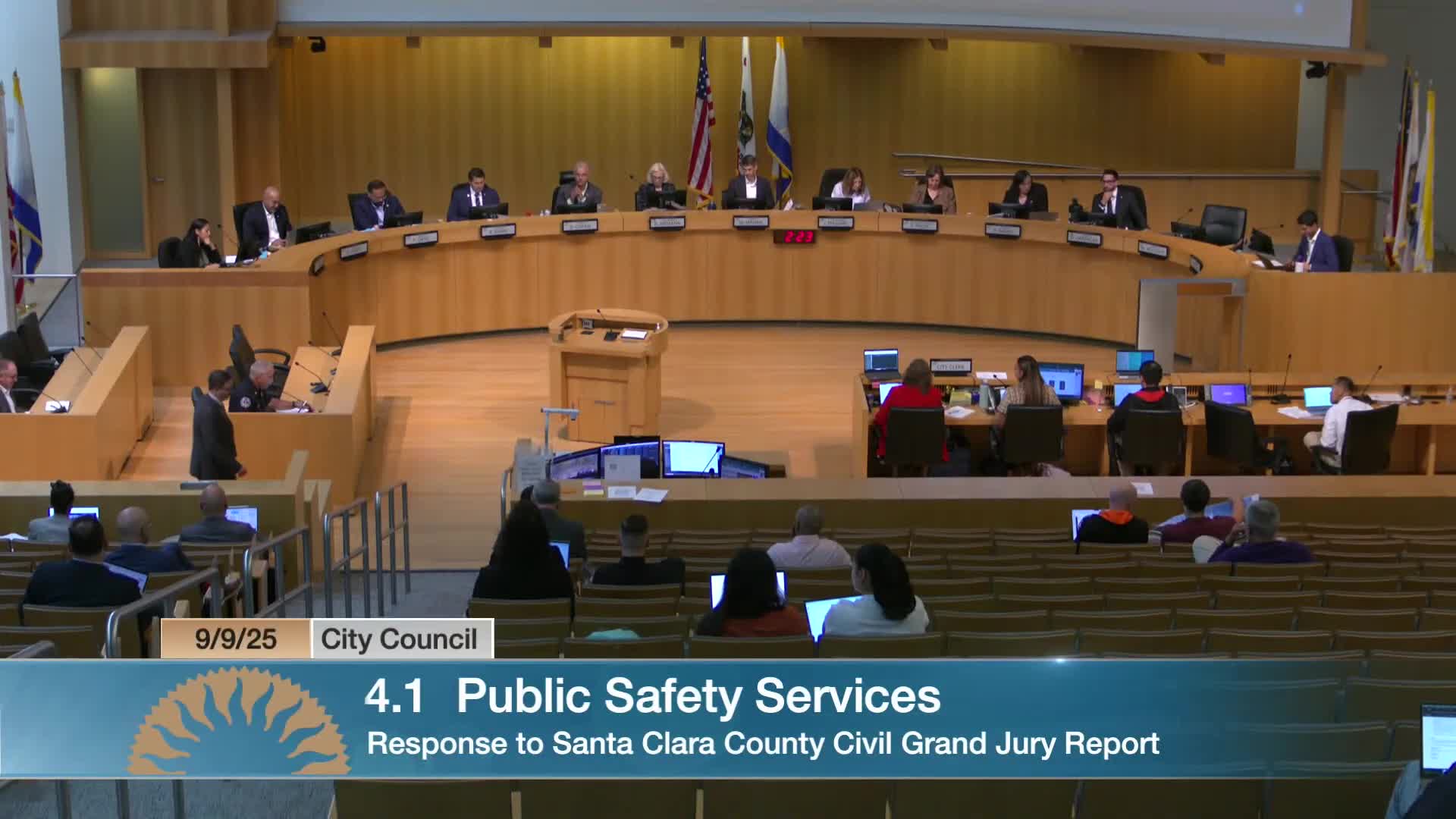
San Jose Fire Department reports progress on recruiting and station upgrades; council accepts report
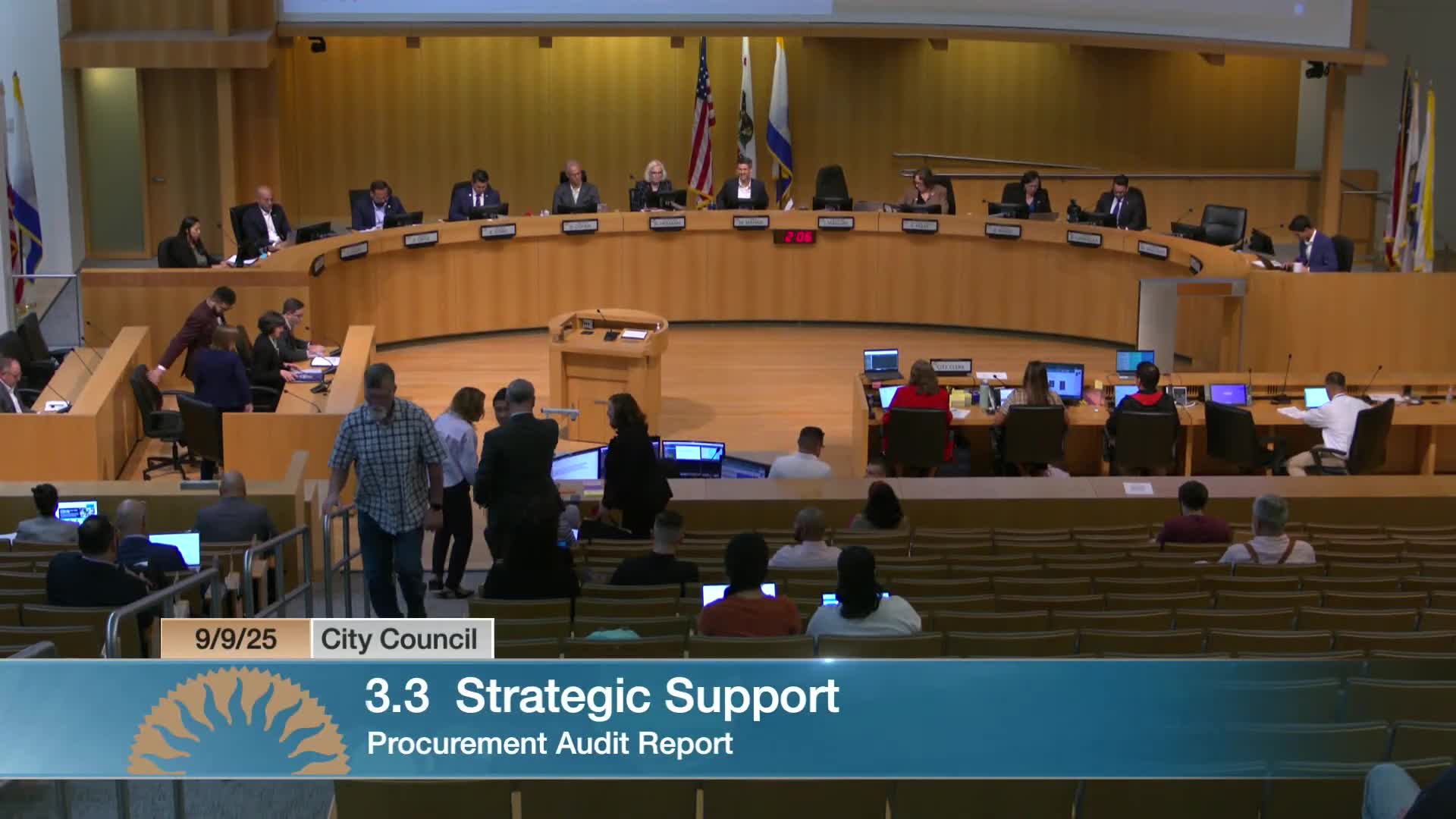
City auditor: procurement timeliness lags; council accepts audit and directs improvements
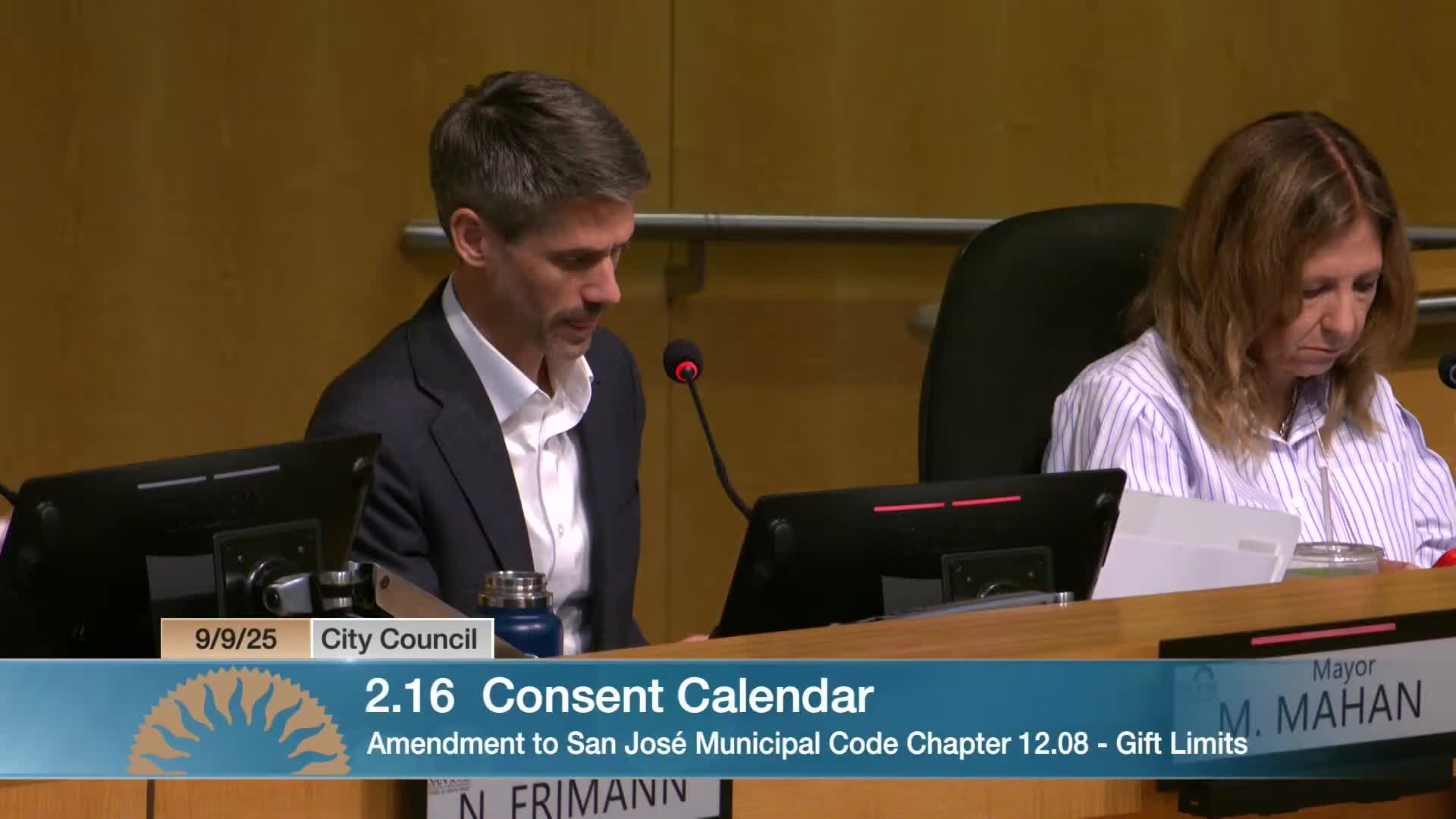
Council raises gift limit to $200 but keeps $50 cap for registered lobbyists; ordinance to return for readings
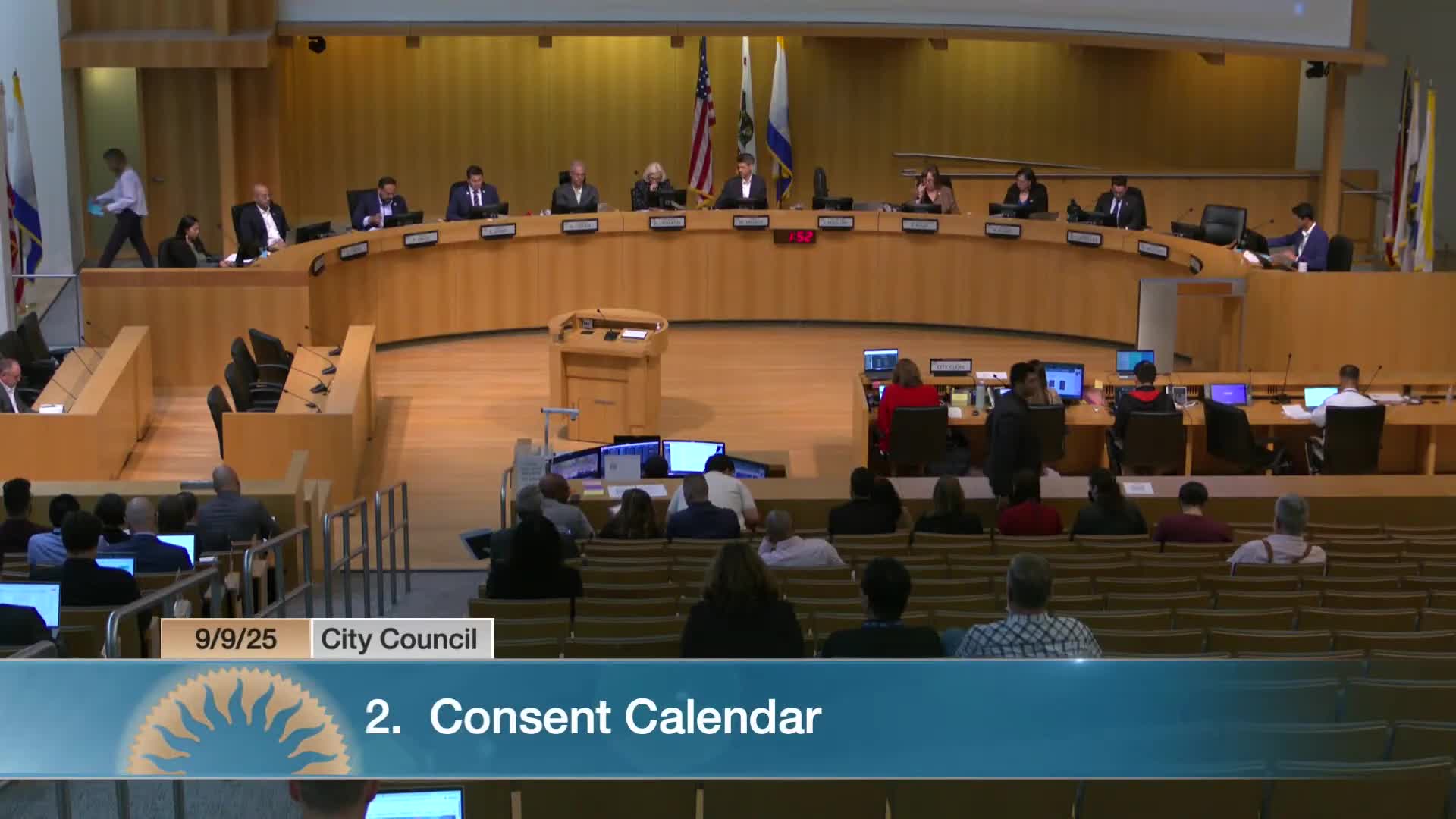
San Jose council refers proposal to analyze divestment from ICE‑linked firms to Rules committee
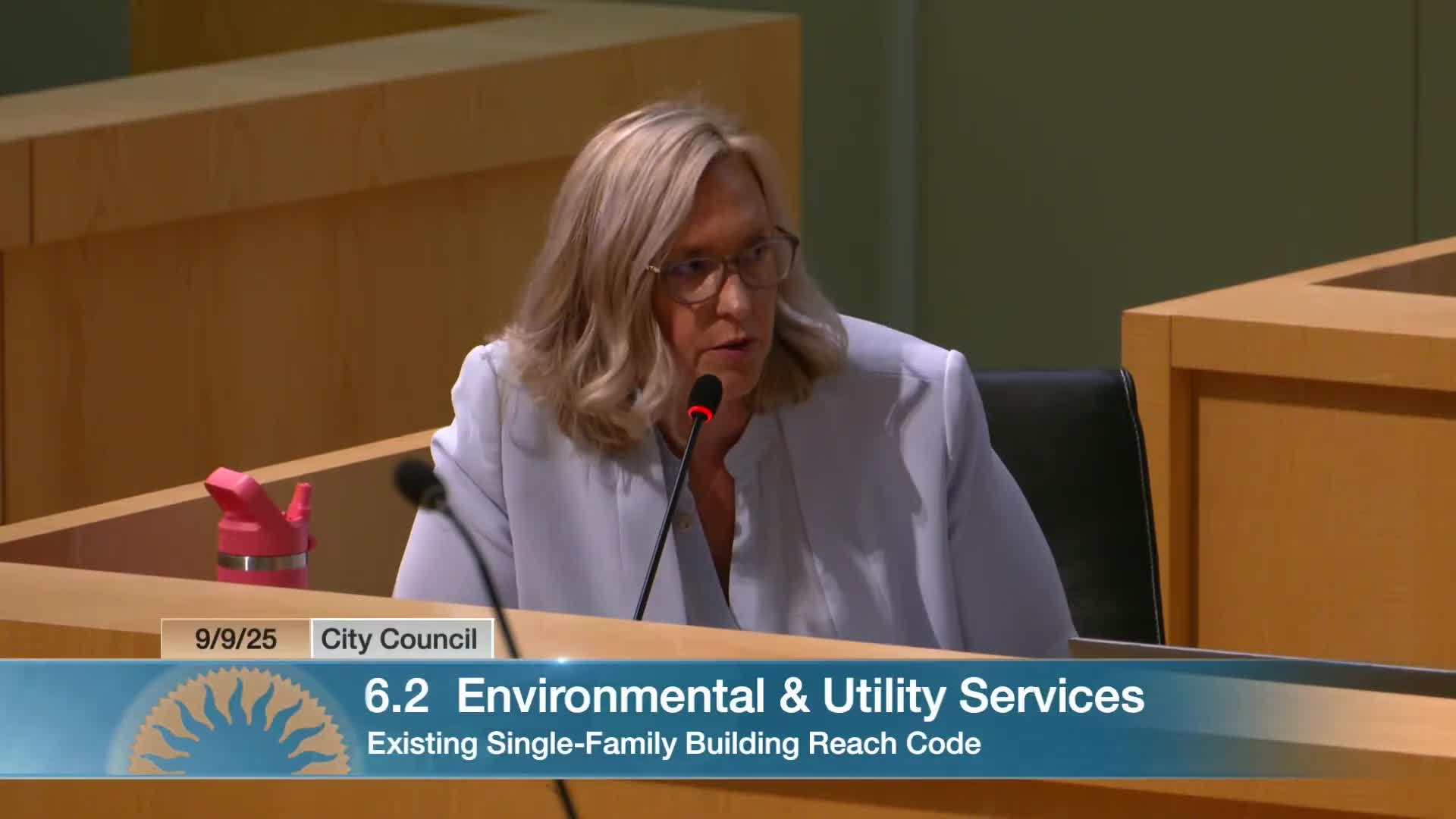
Council accepts San Jose municipal water system public health goals report
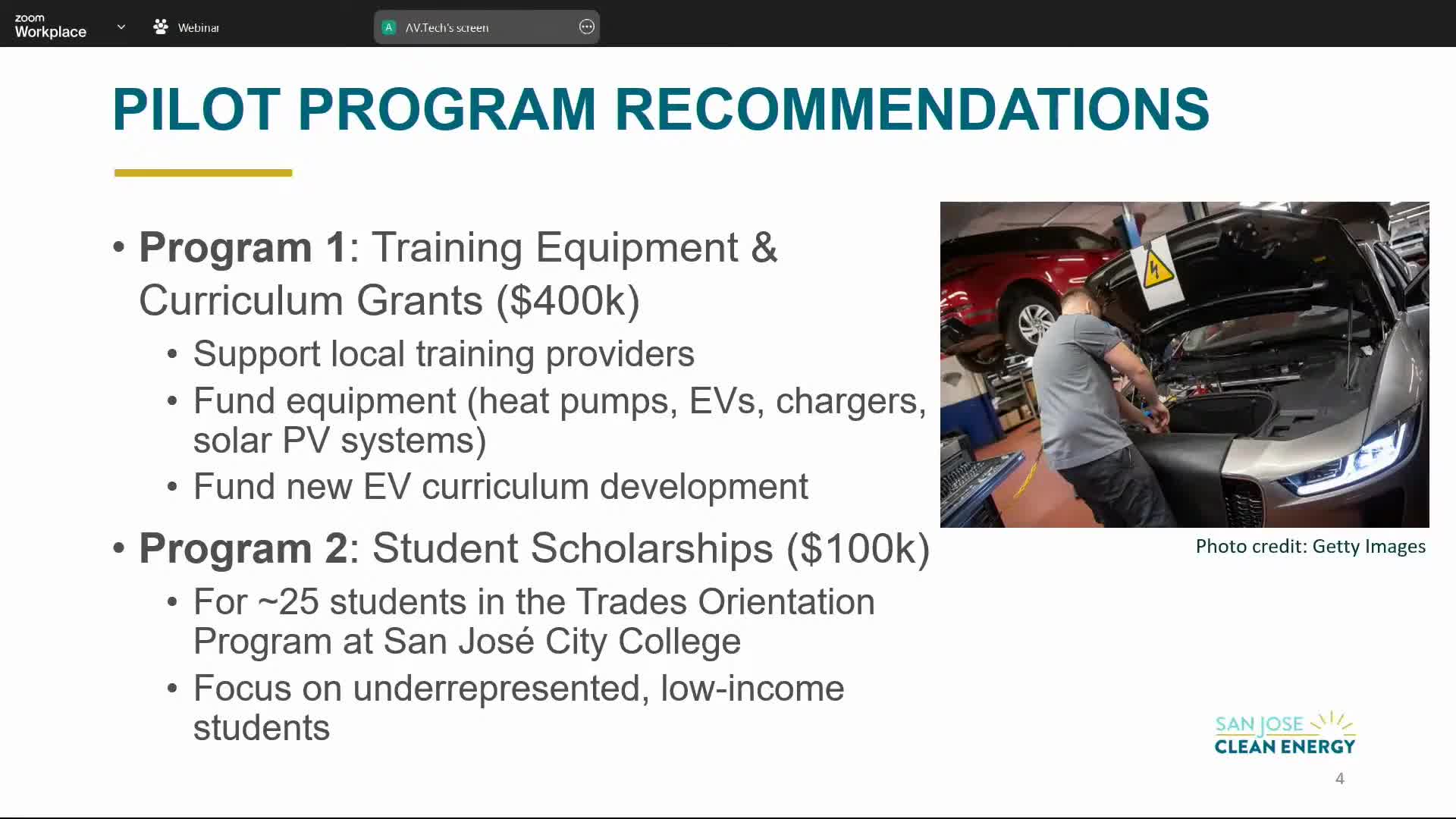
Council deadlocks on reach code for existing single‑family homes; proposal to require heat‑pump conversions on AC replacement fails
